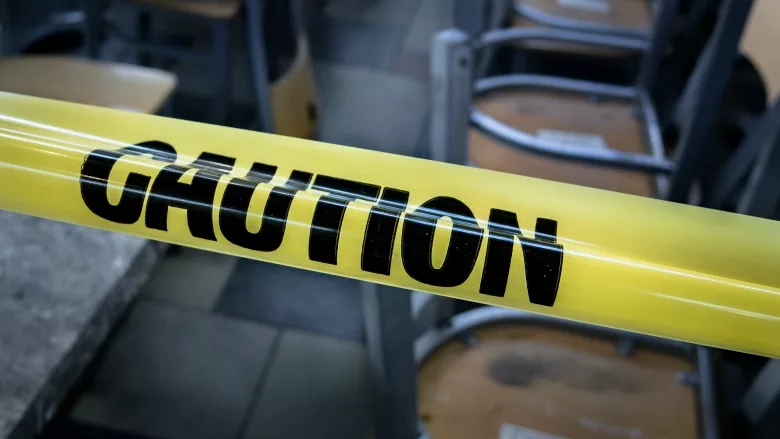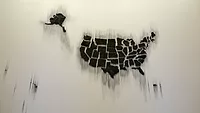Guns in America: A survey on violence, public anxiety and threats

Security professionals are all aware of (and many times, kept up at night by) these staggering numbers:
- 393 million guns in America
- 40 million guns were purchased in 2020, higher than any year on record
- In 2020, 45,222 people died from gun-related injuries in the U.S.
- A 40% increase in active shooter incidents between 2000 and 2020
After all, security leaders have made it their job to keep people safe as they go about their lives — from the numerous threats that could disrupt a peaceful trip to the grocery store or a fun night at a concert.
While it’s easy to think that many people have become numb to these and other numbers about guns in the U.S., they have become a fabric that connects us together as Americans. For example, does a shooting in Aurora, Colorado affect a person in Nashville, Tennessee? Evolv and Equation Research surveyed 2,015 American adults to understand the gun-related weight they carry around.
Gun experiences are pervasive
The research finds that experiences with guns — and particularly shootings — are everywhere.
Twenty-nine percent of respondents report having been in a location where someone unexpectedly opened fire with a gun. Nearly 4 out of 10 (38%) know someone else who has experienced unexpected gunfire.
In both cases — those who have personally been in a location and know someone who has — these incidents most commonly occurred in a bar/nightclub or at a large gathering.
Americans are collectively very nervous
According to the American Psychological Association, Americans are living with an increased level of stress and anxiety since March 2020. While the research reveals people consistently carry around a troubling level of anxiety around gun violence, shootings and terrorism events, those levels remain high in 2021.
Eighty-one percent of respondents report being anxious about gun violence. As a result of gun violence and/or terrorism incidents, 62% of respondents report anxiety about going to public places, especially a large gathering, bar/night club or movie theater. Among those who plan to attend a live event in the next six months, COVID-19 (46.2%) and worries over large crowds (37.2%) are top concerns, but 31% also cite concerns about an active shooter/shooting, and 21% worry about a terrorist attack.
Gun violence has a quantifiable impact on businesses
It turns out that this anxiety impacts what kinds of places Americans are comfortable going, quantifying the toll for businesses — especially those in the industries people deem at highest threat of a violent event.
- Nearly 40% report that they have avoided going somewhere due to fear or anxiety around guns.
- At the type of locations where high-profile mass shootings have taken place, Americans routinely check the exits and/or review their mental plan in case of an active shooter, as well as report higher levels of anxiety:
- In a movie theater: 62.6% check exits/review mental plan; 28.6% report moderate or extreme levels of anxiety
- In a grocery store: 49.1% check exits/review mental plan; 28.4% report moderate or extreme levels of anxiety
- In a bar or nightclub: 29.7% report moderate or extreme levels of anxiety
- As a result of gun violence and/or terrorism incidents, 62% of respondents report anxiety about going to public places, especially a large gathering, bar/nightclub or movie theater.
Americans are willing to change habits for safety
Quantifying a problem can only lead to solutions if security leaders find ways to learn from the findings. While it’s important to understand how Americans feel about the rising rates of gun violence, it’s also critical to understand the steps they would take in order to feel safer.
- 78% of respondents would be willing to go through extra steps at everyday places in order to reduce the threat of a mass shooting or terrorist attack:
- Go through weapons detection screening (57%)
- Have bags checked (46%)
- Check guns at the door (44%)
When only 22% of American adults say they would be unwilling to do anything, it’s clear that businesses of all types need to rethink their approach to physical security. Businesses that welcome the public must take this opportunity reassess their duty to keep patrons safe and the protocols they have in place in do so.
In this unique moment in history, populations emerge from a global pandemic that has kept many away from the things that bring them joy, like live concerts, sporting events and the theater. Americans are collectively anxious about the present and future, as well as how to gather together with others again. While there may be signs that that is possible, security professionals need to make a few tweaks to infrastructure, protocols and technology in order to keep up with the evolving threat landscape.
By rethinking security based on Americans’ collective experience, security leaders can facilitate a more seamless re-entry and ensure the nation can get back to enjoying those things that used to bring so much joy.
Looking for a reprint of this article?
From high-res PDFs to custom plaques, order your copy today!






